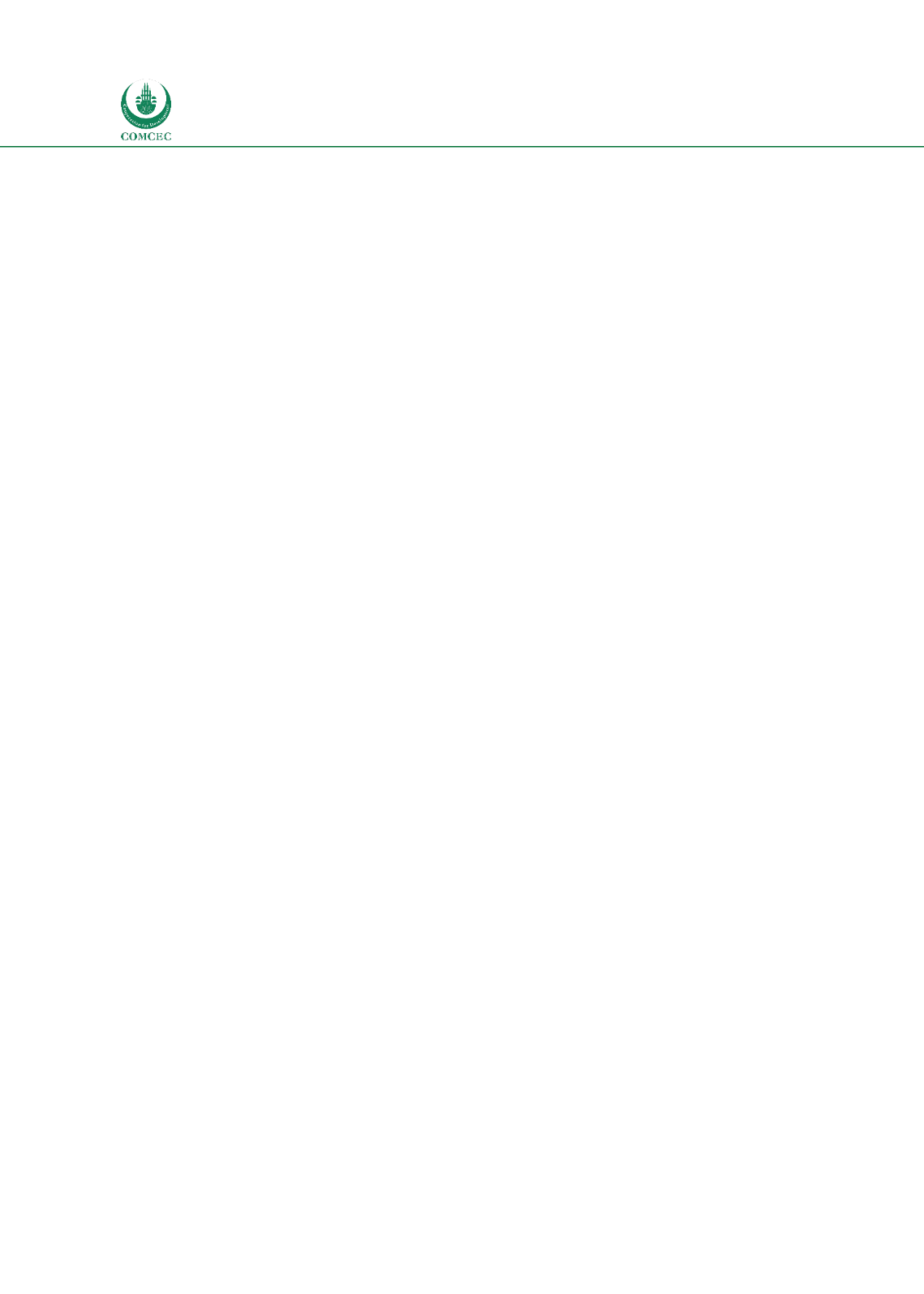

National and Global Islamic Financial Architecture:
Problems and Possible Solutions for the OIC Member Countries
134
Musharakah Certificates (GMCs) which represent approximately 80% of the traded value (KSE,
2013).
4.10.1. Legal Infrastructure
Supporting Islamic Finance Laws
The Sudanese legal system is based on a combination of English common law and Islamic
Shari'ah law. Before the introduction of Islam as the basis of the country’s legal system in 1983,
Sudan used English common law. After the introduction of Shari’ah in 1983, some of the laws
were changed and this included the the Civil Transaction Act of 1984 (CTA 1984) dealing with
sale of goods and services, companies, land and torts. The laws draw upon civil law concepts
from the Egyptian, Jordanian and French legal systems and are similar to comparable laws
adopted in other parts of the Arab world. The CTA 1984 was complemented by the Sources of
Judgments Act of 1984 (SOJA 1984) which requires judges to interpret laws in accordance with
Shari’ah principles. While most of the English law based statutes were cancelled, a few were
such as the Companies Act of 1925 and the Bankruptcy Act of 1929 were amended (IMF and
WB 2005).
The Bank of Sudan Act, 2002 including 2006 and 2012 amendments (BOS 2002) defines
various roles and objectives of the CBOS and stipulates that institutions must fully adhere to
Shari'ah principles (BOS Act, 2012). The Banking Business (Organization) Act, 2003 (BBA
2003) provides the rules of granting and withdrawing bank licenses and also authorizes CBOS
to supervise and control banking and financial institutions. It authorizes CBOS to inspect banks
and financial institutions under its supervision to ensure that the whole banking sector
complies with CBOS laws and regulations. It establishes the Shari’ah High Supervisory Board
(SHSB) and authorizes it to supervise and monitor the implementation of Shari’ah rules and
principles in the banking sector (BBA 2003).
The Takaful sector in Sudan is governed by the Controller of Insurance Act, 1960 (CI Act, 1960)
which remained in effect and was applicable to all conventional and Islamic insurance
companies until it was repealed in 1992 following the adoption of the Insurance Supervision
and Control Act, 1992 (ISC 1992) and the Insurance Control Act, 2001 (IC 2001). Modifications
were made to adapt the Islamization of insurance system which started in 1992 (Sulieman,
2013). The Insurance and Takaful Act 2003 (IT 2003) was initiated to fill the gap and identify
the range, subject matter, and parties of insurance and takaful contracts that should be used as
a reference before courts. IT 2003 also distinguished life insurance to be distinct from general
insurance (IMF and WB 2005).
Capital markets in Sudan consist of KSE where equities, GICs, Sukuk, and securities certificates
are traded. It is governed by the Khartoum Stock Exchange Act of 1994 (KSE ACT 1994), and
Financial Markets Regulation Authority Act of 2015 (FMRA Act 2015). The legal framework of
KSE is also supported by other related laws such as Sukuk Act of 1995 (SA 1995) and the Civil
Transactions Act of 1984 (CT 1984).
















